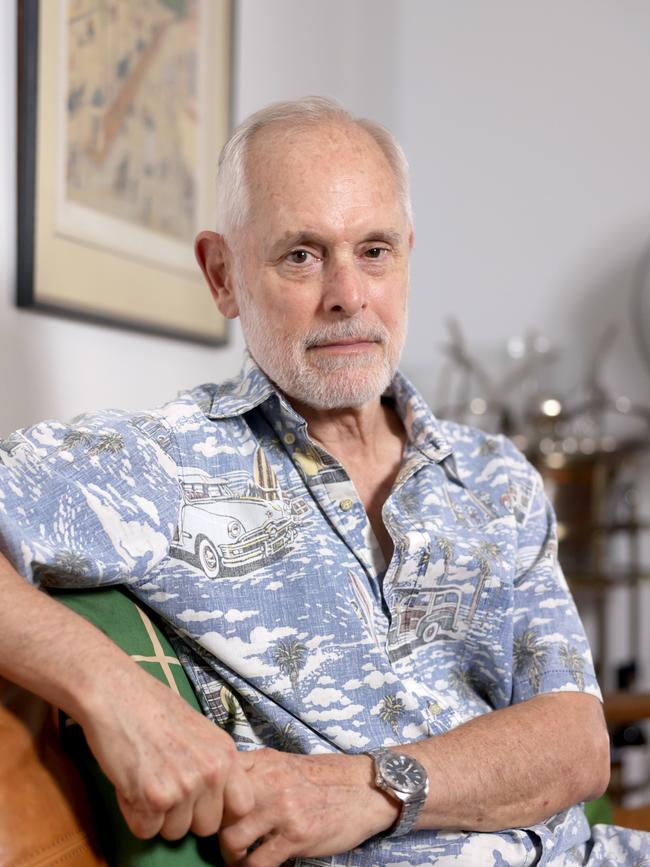For people with rare and less common cancers, the absence of screening and early detection leaves them relying solely on timely and effective treatment – a lifeline that is too often out of reach. Despite significant breakthroughs in precision medicine and the emergence of innovative, less toxic therapies, access to these advancements remain unavailable to many.
Clinical trials can be a critical pathway to hope, granting access to potentially life-saving treatments and driving the development of new therapies. But too many people with rare and less common cancers and prevented from taking part due to where they live, a lack of awareness of available trials and the cost of travel to participate.
New therapies hold immense promise for people with cancer, yet their benefits are not accessible to all.
The challenges
An outdated and deeply unequal system
Right now, two patients in an Australian hospital are prescribed the same drug. One pays $31.60 per round of medicine; the other pays over $10,000 per round. The only difference? Where their cancer started. One patient has melanoma, while the other has epithelial sarcoma – a rare cancer. The drug is the same, it targets the same biomarker on the cancer, but the system treats these people differently because of where the cancer is located.
Patients with rare cancers are too often last in line for innovation and new treatments. While all patients are waiting too long, with it taking 466 days on average for life saving medicines to become available on the PBS after registration in Australia (the average time from registration to subsidy, Medicines Australia 2022), the wait can be endless for those with a rare cancer. People often need to fundraise to travel overseas to access treatments. This unequal access to innovation and expertise creates a silent divide, where survival may depend not on need, but on postcode or income.
A key reason these inequities exist is because Australia’s system for subsidising medicines, Health Technology Assessment (HTA), is plagued by long delays, outdated assessment methods, and evidence requirements that work for conditions that affect lots of people, not those with rare diseases. Treatments are often inaccessible due to separate assessment pathways, lack of transparency, and a model that still assesses medicines one cancer type at a time rather than by genomic markers – leaving many patients without access to life-saving therapies.
Access to clinical trials
Clinical trials are a critical part of cancer care, essential for developing new treatments and improving existing therapies. For people with rare cancers, who have fewer effective treatment options and often a poorer prognosis, a clinical trial may be the only valuable avenue of treatment. Yet, patients often face barriers including finding out about clinical trials, needing to travel to access appropriate trials, and meeting out-of-pocket costs.
Patient travel and accommodation schemes are inconsistent across jurisdictions and have not increased in line with the cost of living. Only NSW patients can access funding to travel for clinical trials.
These disparities demand urgent attention if we are to create a system where everyone, regardless of the rarity of their cancer or where they live, has a fair chance at life.
Addressing the issue
At a systemic level, Australia needs a modern and agile Health Technology Assessment (HTA) process that better balances evidence-based decision making and cost-effectiveness with equity of access for people with rare cancers.
An HTA Review was agreed upon in the 2022–2027 Strategic Agreement between the Commonwealth and Medicines Australia. Between October 2022 and May 2024, the Review looked at the current HTA processes and considered evidence from a range of stakeholders, including RCA.
The final report, published in September 2024, made 50 recommendations to improve access, equity, and the ability to evaluate complex and emerging technologies in a timely manner. An Independent Advisory Group has been set up to advise the Government on implementation of the HTA Review Report.
What RCA is doing about it
RCA will keep advocating for a fairer, faster system that is affordable for patients. We are working with patients, clinicians, Government and stakeholders across the sector to make these important changes a reality.
- RCA submitted evidence to the HTA review, with recommendations to tackle systemic issues. The Review acknowledges many of the issues we have been advocating for over the past decade, which is an important step.
- In March 2024, RCA CEO, Christine Cockburn hand delivered a consensus view of some of the most influential cancer organisations in Australia to Minister for Health, Mark Butler MP, in Parliament House calling for a pan-tumour approach to drugs access, essentially facilitating timely access for patients.
- In October 2024, RCA CEO, Christine Cockburn, made a public statement expressing RCA’s disappointment in the Pharmaceutical Benefits Advisory Committee’s (PBAC) rejection of a proposed streamlined approach to accessing a life-saving class of cancer medicines.
- In late 2025, RCA will host a policy roundtable series in partnership with Cancer Trials Australia to look at availability and access to clinical trials for people with rare cancers in Australia. We will convene patients, government, clinicians, researchers, industry and other interested stakeholders to discuss ways to increase patient access to clinical trials, optimise trial delivery, and speed up the translation of trials into clinical practice.
What we want
We want people with rare and less common cancers to have equitable and affordable access to the treatments that they need. No one should be forced to access superannuation early, borrow or fundraise money to pay for a potentially life-saving treatment that is available for other cancer types with the same genomic variation but not their own due to its rarity.
Our system can and must stop penalising people with rare cancers by:
- Reforming our HTA process so that applications can be made across multiple cancer types based on shared genomic markers – also known as ‘pan-tumour’ applications.
- Fast-tracking access to biomarker-targeted medicines, based on pan-tumour assessment, so that rare cancer patients can have equitable access to medicines already available in Australia for other cancer types.
- Adequately funding and resourcing health technology assessment so that delays are reduced; and funding the implementation of the HTA Review recommendations to deliver the promised bold reform that is so desperately needed.
- Raising awareness of clinical trials and supporting participation.
- Expanding travel and accommodation support for those needing treatment or trial access away from home.
People with rare and less common cancers face clear inequity within the current HTA processes. Without urgent action and prioritisation, people with rare cancers will continue to face unacceptable delays in accessing life-saving treatment.


